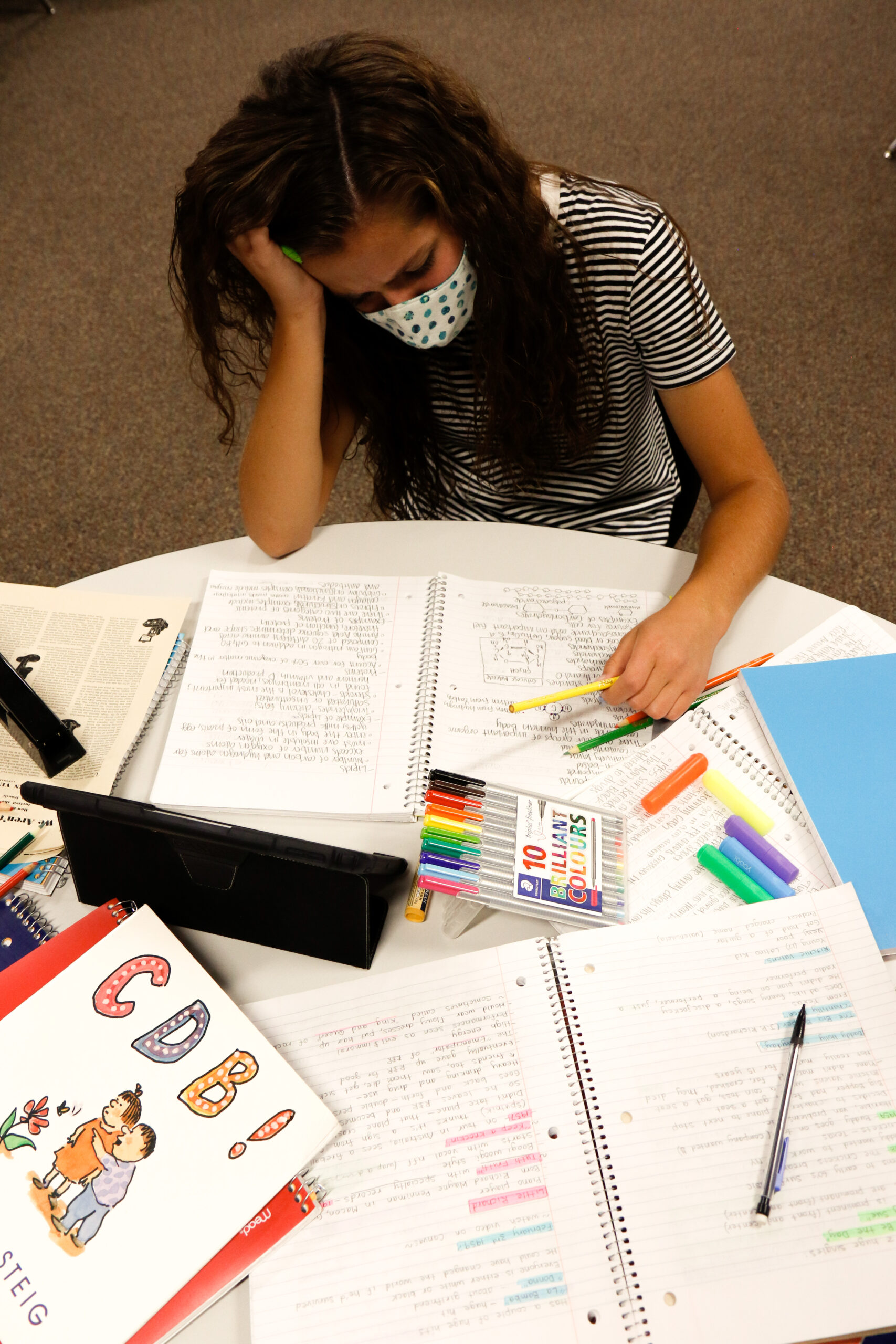“My pulse starts to quicken. My lungs begin to strain. I’m drowning. It’s going to be okay, it’s going to be okay, it’s NOT okay.”
This is how Ella Roberts, a sophomore at Rock Springs high school, describes her experiences and feelings with stress.
Stress can affect your body, your thoughts and feelings, and your behavior. For some, it may cause exhaustion while others may experience panic. During the current coronavirus situation, these feelings are even more prevalent.
“I think anxiety or stress-related problems are on the rise,” said Heather Allred, counselor at NS. “People are more isolated and things are uncertain, and then you have the worry of getting sick or giving it to other people so I think that [stress] is definitely higher than it was February of last year.”
The cause of stress differs from person to person. For Siri Huntington, a senior at NS, she finds it hard to balance school, sports, and time with family and friends.
“I just feel like I have a lot to do and never really time to do it,” Huntington said. “I also don’t want to work all of the time, I want to have some fun times too.”
Kaje Nielsen, a senior at NS, finds that sometimes his stress is caused by the feeling that things need to be completed soon after they are assigned, which he calls “reverse procrastination.”
“I’ve always been raised with my mom saying ‘work before play,’ and that’s so ingrained in my mind that I can’t even have fun if I know in the back of my head that something needs to be done,” Nielsen said.
Stress is not limited to what high school you attend or how many responsibilities you have. For Roberts, who attends high school in Wyoming, stress is something that affects her life daily.
A moderate amount of stress can be healthy and work as a motivator to help get things done. However, It can have the opposite effect and negatively impact your routine.
“Freaking out, thinking of the absolute worst possible thing that could happen, crying, not being able to sleep, or being extremely tired,” Roberts said. “Trying to run, not physically, but sometimes I feel like I need to run away from my problems, and I attempt to but it never works.”
Roberts has found that others’ reactions to her stress only make matters worse.
“They kind of just tell me to get a hold of things,” Roberts said. “And I’ve found that doesn’t really help and usually leads to more stress.”
Instead of telling people what they should be doing, Roberts recommends taking time to listen, and to also be supportive and helpful.
Each individual has a different reaction to stress, and most people have both negative and positive coping methods. Along with debating with others on Facebook and stress eating, Nielsen finds himself drinking plenty of water on stressful days.
“I’ve probably drunk like a gallon and a half of water every day, maybe two gallons on the most stressful days,” Nielsen said. “I don’t know if that helps anything, but when I’m stressed I just sit and guzzle.”
Stress comes in many different forms, as well as levels of severity. No matter what someone’s situation is, or how bad their stress is, there are ways to cope with stress and decrease its negative effects.
For Huntington, it helps to take a step back and assess what needs to be done. Putting things in perspective helps her realize exactly what she should do.
“For me, it helps a lot if I write down what I need to do,” Huntington said. “It keeps me organized and keeps me calmer.”
Roberts finds that forgetting about her responsibilities for a while helps her cope with stress. Whether it is listening to music, hiking, or spending time with family and friends.
“I like to listen to music a lot,” Roberts said. “It helps me cope with my stress. Also just deciding to step back for a moment and not care about my responsibilities and just live in the moment.”
Nielsen also realizes the importance of taking time to enjoy life, instead of only focusing on responsibilities.
“I feel like a lot of people in high school don’t realize that they’re in the middle of life right now,” Nielsen said. “So prepare for the future, but also don’t be afraid to just have a good time and enjoy your life.”
Many people can figure out coping techniques such as doing an activity they enjoy, making helpful lists, or drinking extra water. However, if stress is overwhelming and coping becomes difficult, it is important to seek out help.
“It grows and gets bigger, and then you can’t sleep and you can’t eat and it starts to kind of impact your functioning,” Allred said. “So your thoughts are scrambled and your body feels bad, and so you kind of start to avoid everything.”
As a professional counselor here in our school, Allred knows strategies for helping people handle their stress. She recommends starting with slowing your breathing down and focusing on the present to reduce and manage stress.
“If you can identify your thoughts, then you can do something about them,” Allred said, “so you start to take control, instead of your mind and body controlling you.”




